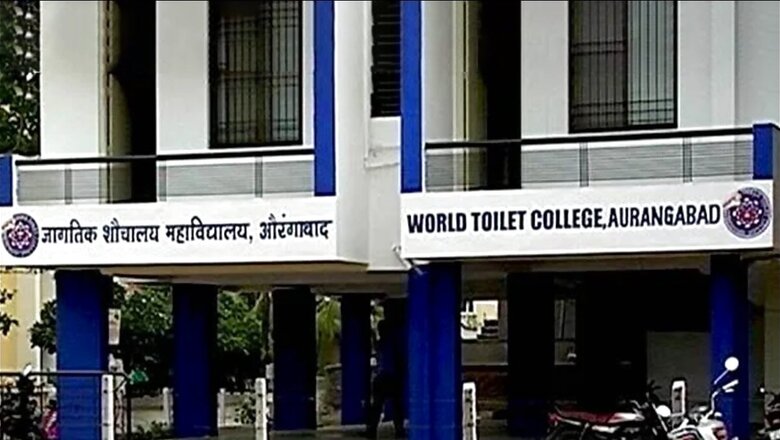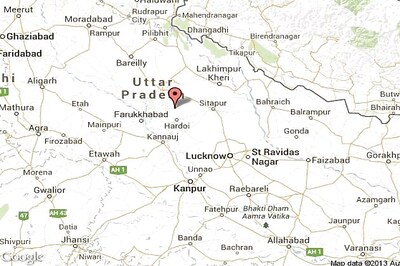
views
For most of us, we’ve seen an appreciable change in the cleanliness of our cities, our highways, and most notably, our public toilets since the Swachh Bharat Mission.
This is the education effect – as we know, it takes just one person on a plane to mess up the toilet, and everyone suffers. Ditto our schools, workplaces, train stations, bus depots, and everywhere else. Education matters in a country where a significant number of people never had access to toilets and must be taught how to use them safely, cleanly, and with consideration to others.
Sanitation workers play a vital but underappreciated role in maintaining cleanliness and hygiene in our communities. Among these unsung heroes, women sanitation workers in India face unique challenges – they are often less educated than their male counterparts, less likely to work outside the home, often have to fight their families to work, and despite all of that, often make less money than their male counterparts.
One organisation that has made a significant impact in empowering these women is the Harpic World Toilet College (HWTC). HWTC not only equips them with essential skills and knowledge but also contributes to their personal growth and their ability to make a substantial impact in their communities. The college operates as a knowledge sharing platform with an aim to uplift the lives of the sanitation workers by educating them about their rights, health hazards, use of technology and alternate livelihood skills.
Harpic World Toilet College: Empowering Through Education
Established with the goal of improving sanitation and hygiene practices, HWTC has taken a holistic approach to empower these workers. For women sanitation workers in particular, this has proved to be a game changer.
Providing Essential Training and Skills
Many of these women enter the profession without any formal education or training, which often exposes them to significant health risks. Also, as sanitation is considered ‘unskilled’ labour, without training, these women have no prospects to aspire to.
HWTC’s training programs cover a wide range of topics, including safe sanitation practices, waste management, and the use of protective equipment. These skills not only make them better cleaners, but also protect their health. For example, learning about the dangers of faecal oral transmission and exposure to cleaning chemicals has significantly reduced health risks amongst these workers.
Elevating Their Social Status
Many of these women face discrimination and social isolation due to their profession. HWTC’s training instils confidence and a sense of pride in their work, and helps them secure jobs in the organised sector. This raises their standing in their communities, as they are seen as ‘trained’ and ‘skilled’ workers. Often, these jobs involve wearing a uniform, which, by itself, confers a certain standing and pride.
Maya Sable, who worked in the unorganised sector under deplorable conditions, found a new sense of purpose and respect after her training at HWTC. She not only secured a better-paying job for herself, but also became an advocate for proper training for other sanitation workers.
Creating Better Employment Opportunities
HWTC actively collaborates with various organisations to create better employment opportunities for women sanitation workers. This includes placements in hospitals, hotels, and other institutions where sanitation and hygiene are critical.
Laxmi Vijay Ghodke, who cleaned public toilets for eight years without recognition, found herself working at MGM Hospital, Aurangabad, after her training at HWTC. Her dedication and hard work led to a rapid promotion to supervisor, making her the first lady supervisor in the hospital.
Financial Security and Empowerment
Financial security is a critical aspect of empowerment for women sanitation workers. Many of these women are the sole breadwinners in their families and face significant financial challenges. HWTC’s training programs not only lead to better-paying jobs but also include benefits such as PF, ESIC, and insurance.
Chhaya Warekar, who started cleaning community toilets to make ends meet, underwent training at HWTC and secured a housekeeping position at Dhoot Hospital, Aurangabad. Her improved salary, along with benefits like PF and ESIC, allowed her to provide her children with a better education and work towards a more secure future.
Enhancing Soft Skills
HWTC recognizes the importance of soft skills in personal growth and career advancement. Vandana U. Gaikwad’s story is a testament to the value of enhancing these skills. She initially worked as a toilet cleaner at a local police station, believing that her opportunities were limited. However, her training at HWTC helped her improve her soft skills, setting her on a path for transformation. Today, she is a counsellor for family violence-related cases at the police station.
Inspiring Change Beyond Themselves
One of the remarkable aspects of HWTC’s impact is how it inspires change beyond the individual workers. Vandana, Maya, Laxmi and Chhaya are also seen as success stories within their communities and command immense respect. They also make powerful communicators, having walked the road themselves. Anyone can see the difference in their lives before and after HWTC – from the salaries they command, to their respect in their communities, to their ability to make a tangible contribution to their families’ growth and welfare.
This ripple effect highlights the transformative power of education and empowerment.
Conclusion: A Brighter Future Through Empowerment
The Harpic World Toilet College has emerged as a powerful force in empowering women sanitation workers in India. Through education, training, and advocacy, it has provided these unsung heroes with the skills, confidence, and opportunities they need to lead better lives and make a more significant impact in their communities.
Harpic, as India’s leading brand in the lavatory care segment, understands the power that communication can wield. For years now, Harpic has created thought provoking campaigns that help bridge the education gap on toilet hygiene and toilet etiquette. Joining hands with News18, Harpic also created Mission Swachhta aur Paani, a movement that champions the cause of inclusive sanitation, equality for all genders, abilities, castes and classes and the strong belief that clean toilets are a shared responsibility.
Mission Swachhta aur Paani has taken on the mantle of communicating the ins and outs of toilet hygiene, by using its powerful platform to promote dialogue between decision makers and users, and by creating easy to consume resources for educators, activists, and people like us. By bringing to light stories of women like Maya, Vandana, Laxmi, and Chhaya, Mission Swachhta aur Paani is making it possible for women sanitation workers all over the country to envision a better future for themselves and their families.
We invite you to do your bit. Learn how, here.


















Comments
0 comment